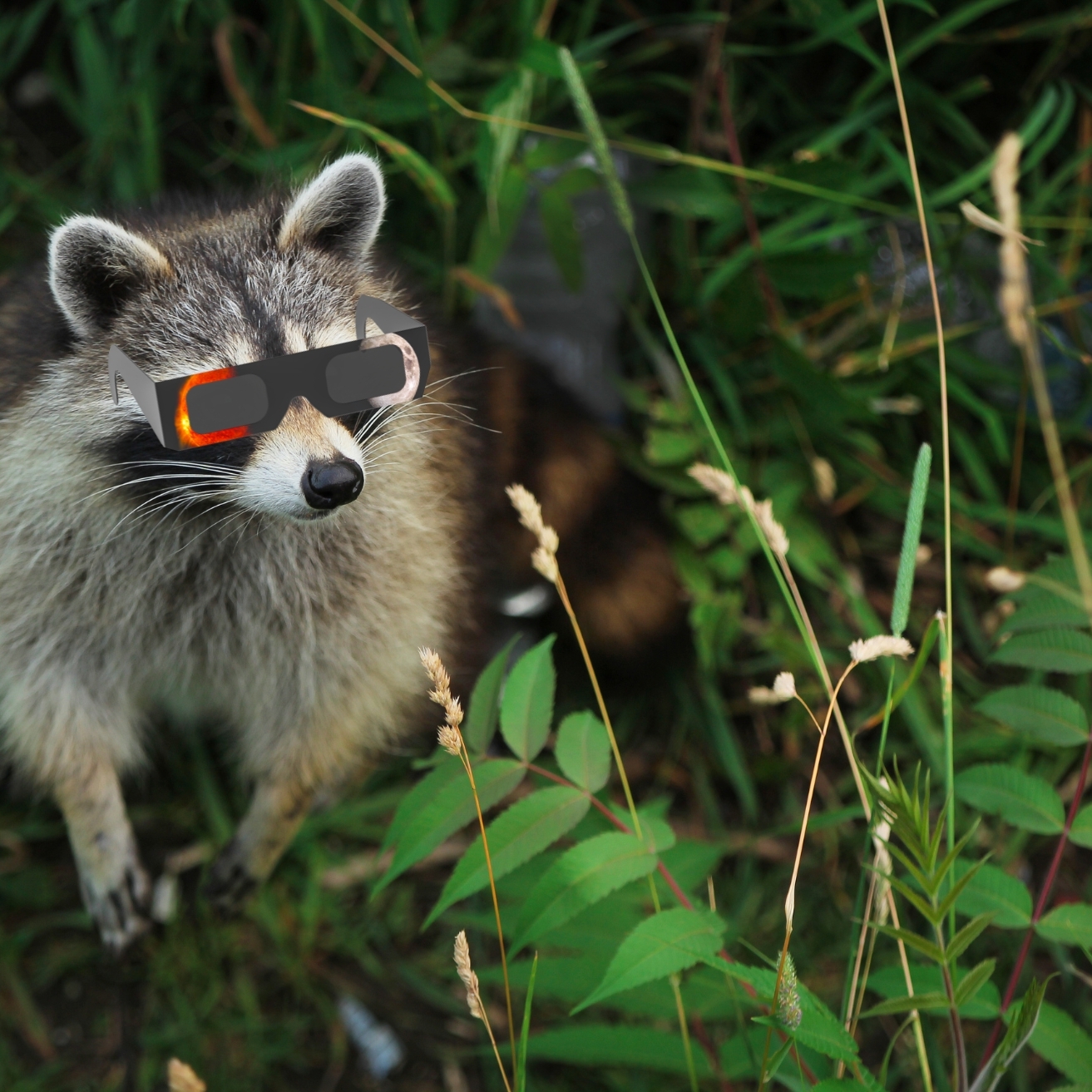
How Do Total Solar Eclipses Affect Wildlife?
Posted on April 4, 2024
We’re willing to bet that you’ve already heard all about the upcoming total solar eclipse taking place next Monday, April 8, 2024. (If not, that’s okay! You can learn all about it here.)
Amidst all the hubbub about acquiring glasses, the path of totality, and the sheer rarity of this event, there’s another conversation going on—a conversation about animals. Will the sudden darkness and shift in temperature have any effect on unsuspecting wildlife?
Knowing that animals can’t tell time, read headlines, or check their phones, we can infer that they won’t be expecting it to get dark in the middle of the day. So, at the very least, they’re going to think it’s nighttime. But, what will they do?
Animal Behavior During Eclipses
Because of how rare total solar eclipses are, there’s not an abundance of reliable data on the topic... but there is some. One report from the year 1560 claims that birds fell from the sky (we’re not so sure about that one). The first comprehensive study on the matter was conducted in 1932 and relied on observations from 500 people. At the time of the eclipse, people reported that squirrels ran into the woods, crickets began chirping, owls started hooting, bees returned to hives, and cattle and sheep headed into barns. The same study showed that zoo animals had little or no response to the eclipse. This conflicted with the results of a more recent zoo animal study conducted during the 2017 total solar eclipse, which included reports of Galapagos tortoises moving more quickly than usual and mating, giraffes galloping, and apes emitting unusual vocalizations.
Also in 2017, the Cornell Lab of Ornithology analyzed 1,350 checklists submitted from the time of maximum eclipse and compiled a report of the most interesting observations, which included the emergence of nocturnal and crepuscular species, as well as reports of huge flocks of birds flying at unusually low altitudes or stopping to roost (maybe that’s what that observation from 1560 was referring to...).
What Can You Expect in Southwest Michigan?
Because we aren't in the path of totality and therefore won’t experience total darkness or notable temperature drops, we don’t expect any standout wildlife behavior on our preserves...but don't let us stop you from going out and observing! Email col@chikamingopenlands.org if you notice anything unusual. We're interested in hearing about it!
If you want to take it one step further, you can take an online training course and submit data to NASA's Soundscapes study, a citizen science project studying how eclipses affect life on Earth during the October 14, 2023 annular solar eclipse and the April 8, 2024 total solar eclipse.




















